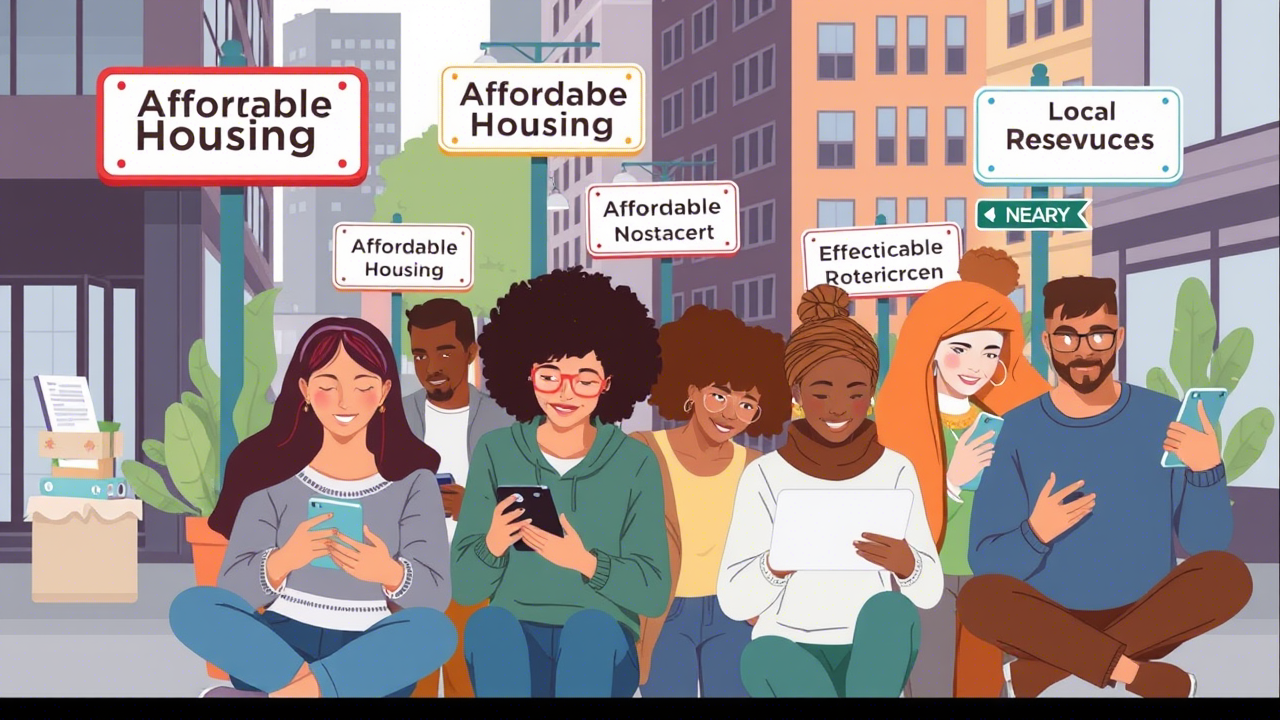New Jersey. A state known for its gorgeous coast and exuberant cities. Many want to inhabit here. Yet, housing prices can get extremely demanding. Are homeownership dreams set far-fetched in the Garden State? The answer is no more! There are indeed affordable houses. The knowledge of how to find them, is all that is required.
This article simplifies affordable housing in New Jersey. It will help you with all details needed to find somewhere you can call home. We will investigate who can apply. Know all the steps in the process. You will get to see the different programs that help you in renting an affordable house.
Understanding Affordable Housing in New Jersey
What is the meaning of the phrase “affordable housing” in NJ? It essentially means housing that costs a reasonable percentage of a person’s earnings. Income limits matter. Income limits are often based on the Area Median Income (AMI). A crucial distinction is subsidized versus naturally occurring affordable housing (NOAH). Subsidized housing receives government assistance. NOAH is affordable due to market conditions as opposed to subsidies.
What Qualifies as Affordable Housing?
Affordable housing programs ordinarily measure income against some percentage of AMI, usually 30%, 50%, or 80% of AMI. To qualify, your income would have to fall below those limits. Exact income limits vary depending on household size and county. Here are some examples:
County Household Size 30% AMI Limit 50% AMI Limit 80% AMI Limit
Bergen 1 $27,000 $45,000 $72,000
Essex 2 $30,500 $51,000 $81,500
Mercer 3 $34,000 $56,500 $90,500
Ocean 4 $37,500 $62,500 $99,500
Note: These are estimated figures and can vary.
Types of Affordable Housing Options Available
In New Jersey, you have a few different types of affordable housing. Public housing means government-owned houses. Section 8 vouchers (Housing Choice Vouchers) help pay rents. Tax credit properties (LIHTC) are, in fact, privately owned properties but with rent restrictions. There are also state and local programs, among others, to assist you in locating affordable housing. Each individual program caters to a different subsection of the population.
Eligibility Requirements for Affordable Housing Programs
The affordable housing programs most of the time operated in NJ have rules. The rules are mostly with income limits, very important for one to be eligible. Most of the time, the applicant should be a resident of New Jersey. Some programs ask about the citizenship or immigration status. These all things are very much criteria in deciding about the assistance.
Income Limits and How They’re Determined
Your gross annual income counts. This is your income before taxes. It is significant for your eligibility. Certain allowances can be deducted from the gross income. This reduces your “countable” income. For instance, childcare costs might decrease your income.
Say you make $50,000 a year and you have childcare costs of $5,000. Your countable income a year could be $45,000. You might qualify for a program.
Other Factors Booting or Hampering Your Chances
Apart from income, some other things contribute. The landlord looks at credit and background checks. The rental history is also checked. A poor credit score or a criminal record could really hurt your chances. A previous history of eviction could pose a hurdle too.
Searching for Affordable Housing Units in New Jersey
The available houses are quite tough to be obtained. Lucky for you, there are also some better resources. Other resources include the internet. Search and Websites for housing. Local organizations will also be able to help.
Online Resources and Databases
NJ Housing Resource Center (NJHRC) is useful. It lists affordable units that are available. You can search by location and size. You can also filter by rent range. Check out the NJHRC website!
Contacting Local Housing Agencies
Every county in NJ has its own housing authority. They govern public housing and Section 8. Refer to your county housing authority for information. They can tell you about available programs and also assist you in applying.
Bergen County Housing Authority: (201) 336-7600
Essex County Division of Housing and Community Development: (973) 655-0200
Mercer County Housing Authority: (609) 288-0520
Ocean County Housing Authority: (732) 363-0550
Working with Non-Profit Organizations
Non-profitable agencies may also offer help. They provide advice about housing. Some assist with applications. Others help with landlord-tenant issues. They offer valuable support.
Tips for navigating the application process
Applying for affordable housing takes time. The gathering of documents is most important. You have to fill out forms with care. Ensure all of your applications are submitted by the deadline.
Documentation Required
There has to be proof of income. Tax documents can be one good choice. Pay stubs are something that is also usually accepted. Bring some identification such as a driver’s license. Social security cards have to be brought as well. If you lack something get it early!
Precautions to take to have a successful application
Make a good impression: Write a cover letter. Tell them why you need affordable housing. Give explanations for any issues with your rental history. Follow up with housing providers: This demonstrates you are serious.
Common Barriers and Challenges
Getting affordable housing is challenging. Usually, there are long waiting lists. Limited number of affordable units. Some applications might get rejected. You can beat these challenges.
Understanding Waiting Lists
Waiting lists tend to be long. Sometimes wait over years. Managing expectations would work well for you. Keeping in touch with them will help you know how your application is going. Request regular follow-up.
Appealing Application Denials
In any case of be denied, you have the right. You can appeal the decision. Find out why are you denied. Gather the evidence for support of appeal. Follow the appeal process strictly.
Conclusion: Making Your Affordable Home in New Jersey Actual
Finding affordable housing in New Jersey is a process. Be patient and keep going. Know the rules. Utilize the resources available. Apply smart. You would be increasing the chances of a home that is affordable for you. Start looking and make that dream happen! Keep checking out the resources. Reach out to local agencies. Look into programs and stay updated.



